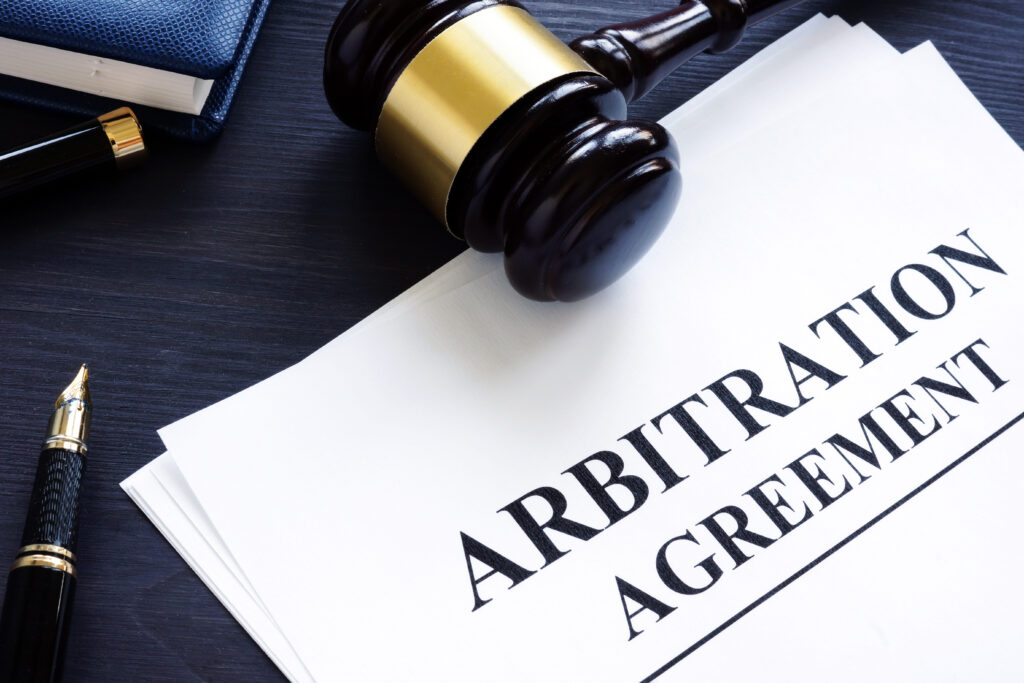In Boykin v. Family Dollar, if a party puts the agreeement to arbitrate “at issue,” the Court must decide whether it is enforeable before compeling the parties to arbitration.
Details of Boykin v. Family Dollar
Timothy Boykin was working late at a Family Dollar store in the Detroit area in 2018. He was a manager at the time, and he worked in a managerial role among several stores in the area. A customer came in two minutes before closing time to buy a greeting card.
Boykin claimed that, after he corralled the carts from outside the store, he politely asked the customer to make his final selection. Boykin then stated the customer responded repulsively and used a racist epithet.
At that point, Boykin told the customer to leave, and the customer became even more abusive and belligerent. The police were called, and the responding officers told the plaintiff that the business had every right to exclude a customer from the premises.
Boykin was 73 at the time, and he is also Black and a military veteran.
An internal investigation occurred after that. The customer told the operations manager of the stores that he wanted Boykin fired. Several weeks later, HR fired Bokyn over the objections of the operations manager. Boykin sued, claiming age and race discrimination in the case.
Family Dollar Invoked Arbitration in the Case
In responding to the lawsuit, Family Dollar moved to compel arbitration, citing that Boykin agreed to arbitration during a company training on July 15, 2013.
Boykin claimed he never signed an arbitration agreement. When he requested his employee file, no arbitration agreement was found in it.
The federal district court where the original suit was filed granted the defendant’s motion to compel arbitration and dismissed the case. It further ruled that an arbitrator must resolve the issue and that Boykin’s denial of signing an arbitration agreement was “self-serving.”
Outcome of Boykin v. Family Dollar
Boykin appealed the decision. The panel of federal judges reversed the 6th Circuit’s ruling by stating that, although Boykin did actually sign the arbitration agreement electronically, the 6th Circuit must determine whether the opposing side has put the making of the arbitration agreement “in issue.”
There are two legal facets of enforcing arbitration at issue in this case. First, a party must file a motion to compel arbitration, and that party must satisfy the court that the claims are referrable to arbitration. Second, a party can file a motion challenging the making of the arbitration agreement (as opposed to the validity of the agreement containing the arbitration agreement as a whole). This challenge specific to the arbitration agreement may be sufficient to put the arbitration agreement “at issue.” This requires a court to decide the issue similar to how it would a summary judgment.
The Court of Appeals reversed the lower court’s order compelling the parties to arbitration because the lower court failed to decide Boykin’s claims of validating that he never signed an arbitration agreement. The appeals court also determined that Family Dollar failed to cite the right section of the FAA, nor did it adequately request a stay in litigation to let an arbitrator decide the case first.
In making its opinion in August 2021, the Court of Appeals noted that the FAA is a century-old law that still consistently has court cases come through the federal appellate system.
Why are discrimination and civil rights subject to arbitration?

Boykin claimed discrimination in this case. It’s well-known that employment agreements make statements that companies cannot discriminate on hiring or promotion decisions on the basis of certain elements, per federal law, including race, color, religion, sex (including gender identity, sexual orientation, and pregnancy), national origin, age (40 or older), disability or genetic information.
Yet the FAA allows for an arbitrator to settle these claims when invoked properly, according to case law dating back to 1991. The court ruled in Gilmer v. Interstate/Johnson Lane Corp that an employee’s claims of age discrimination in violation of his civil rights laws had to go to an arbitrator first. Since then, most claims arising under federal statutes would be subject to arbitration.
Some legal scholars have argued that the Civil Rights Act of 1866 would take precedence over the FAA in determining civil rights in cases, stating that Congress has not created a contrary intent to the 1866 statute.
There are some cases where an employee can sue an employer in court rather than go to arbitration first.
What instances can someone take an employer to court rather than arbitration?
In March 2022, President Joe Biden signed the Ending Forced Arbitration of Sexual Assault and Sexual Harassment Act. Provisions of the law allow employees subject to pre-dispute mandatory arbitration agreements to pursue claims related to sexual assault or sexual harassment in court instead of arbitration if they so choose. The law may be retroactive to arbitration agreements signed before the law was enacted. It also gives trial courts the power to determine the validity of such arbitration agreements as opposed to an arbitrator (reversing one aspect of the FAA).
One aspect of this new law that will have to be worked out comes from arguing other claims made by plaintiffs aside from sexual assault or sexual harassment. Often, claimants will make several allegations in a case outside the original impetus for filing claims. Are all these claims excepted from an arbitraiton agreement if the plaintiff also makes a sexual harrassment claim?
The U.S. House passed the Forced Arbitration Injustice Repeal Act of 2022. However, it has been referred to a committee in the Senate for review. It is unlikely to pass the Senate before this current term expires in December 2022. The bill prohibits a pre-dispute arbitration agreement from being valid or enforceable if it requires arbitration of an employment, consumer, antitrust, or civil rights dispute. If applied retroactively, it would allow claimants to file litigation for these types of claims.
If the bill becomes law at some point, it might open a floodgate of litigation that lower courts and appeals courts on the state and federal levels would have to sort out with regard to interpretation and setting of precedents for future enforcement.
Until then, claimants and defendants can still seek legal advice based on current statutes and case law.
Talk to an Experienced Arbitration Lawyer for Help
Bennett Injury Law is a leading U.S. and international arbitration law firm. Arbitration can be complex, with many moving parts and several issues at stake. Although not litigation per se, claimants and defendants should take arbitration seriously because the decisions made by an arbitrator or a panel of arbitrators have the weight of the law and are difficult to overturn.
Our team of experts has the know-how, insights, and tenacity to represent you in an arbitration case to get the best outcome.
Contact us to request a consultation. We will listen to you and your concerns.

